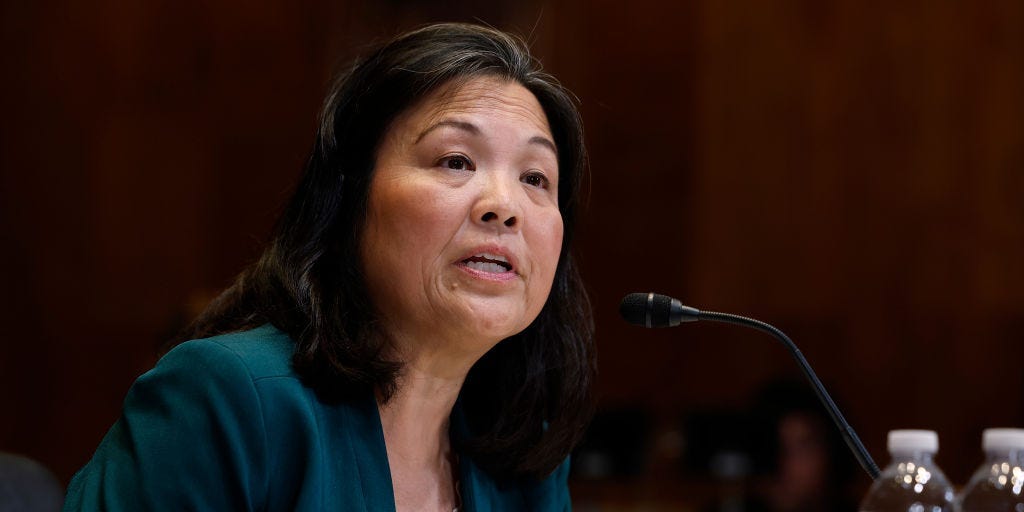- Julie Su is in Seattle to mediate Boeing worker strike to resume negotiations.
- Boeing’s strike began after workers rejected a 25% pay raise, demanding 40% and other benefits instead.
- Boeing’s financial woes include job cuts, plane delays, and potential credit downgrades.
Boeing’s worker strike appears to be in such a stalemate that the US’s top labor official flew to Seattle to mediate.
In separate Monday meetings, Acting Secretary of Labor Julie Su urged both parties to move forward, the labor union for aerospace workers said in a statement.
Analysts at Anderson Economic Group estimated that the first month of Boeing’s 33,000-worker strike, which started on September 13, cost the company and workers $5 billion. The last strike, in 2008, shuttered plants for eight weeks and hit revenue by an estimated $100 million per day, Reuters reported.
While Su has spoken with Boeing and the union before and encouraged both sides to find a fair contract before the strike, this week’s trip was her first time in Seattle meeting both sides in person, a spokesperson for the Labour Union told Reuters.
“While it is important to return to the table, the Union remains firm on securing an agreement that truly reflects the respect our members have earned and deserve,” the International Association of Machinists and Aerospace Workers wrote.
Boeing confirmed that Su met with the company’s negotiating team on Monday in Seattle.
“We will work with the union when they are ready to bargain an agreement that recognizes our employees and preserves our company’s future,” the planemaker said.
Su mediated a 75,000-person healthcare worker strike against Kaiser Permanente in October 2023. She also encouraged negotiations during the stoppage earlier this month involving 45,000 dockworkers on the East and Gulf Coast ports. The Biden administration nominated Su in February 2023.
Boeing workers rejected a proposal to raise compensation by 25% over four years, demanding 40%. According to figures provided by the union and company, the average pay for Boeing Machinists has risen about 15% over the past decade to $75,000. The cost of living in the US has risen 33% in the same period, according to government inflation data.
Since the strike, the company has cut 17,000 jobs and put some white-collar workers on a furlough plan. It’s changed production, too, delaying its 777X plane and discontinuing a 767 cargo plane — all measures to cut costs as the company bleeds money.
Boeing’s cash problems have put it on the radar of credit graders Moody’s and S&P. They may downgrade the company to “junk” bond status, which would make borrowing money more expensive.
Resuming negotiations — and concluding them swiftly — is important for the industry because Boeing has about 40% of the airline manufacturing market share.
United Airlines, Alaska Air, Emirates, and RyanAir executives have expressed frustrations with Boeing since the start of the year, following a series of plane delays and manufacturing issues.
Read the full article here


